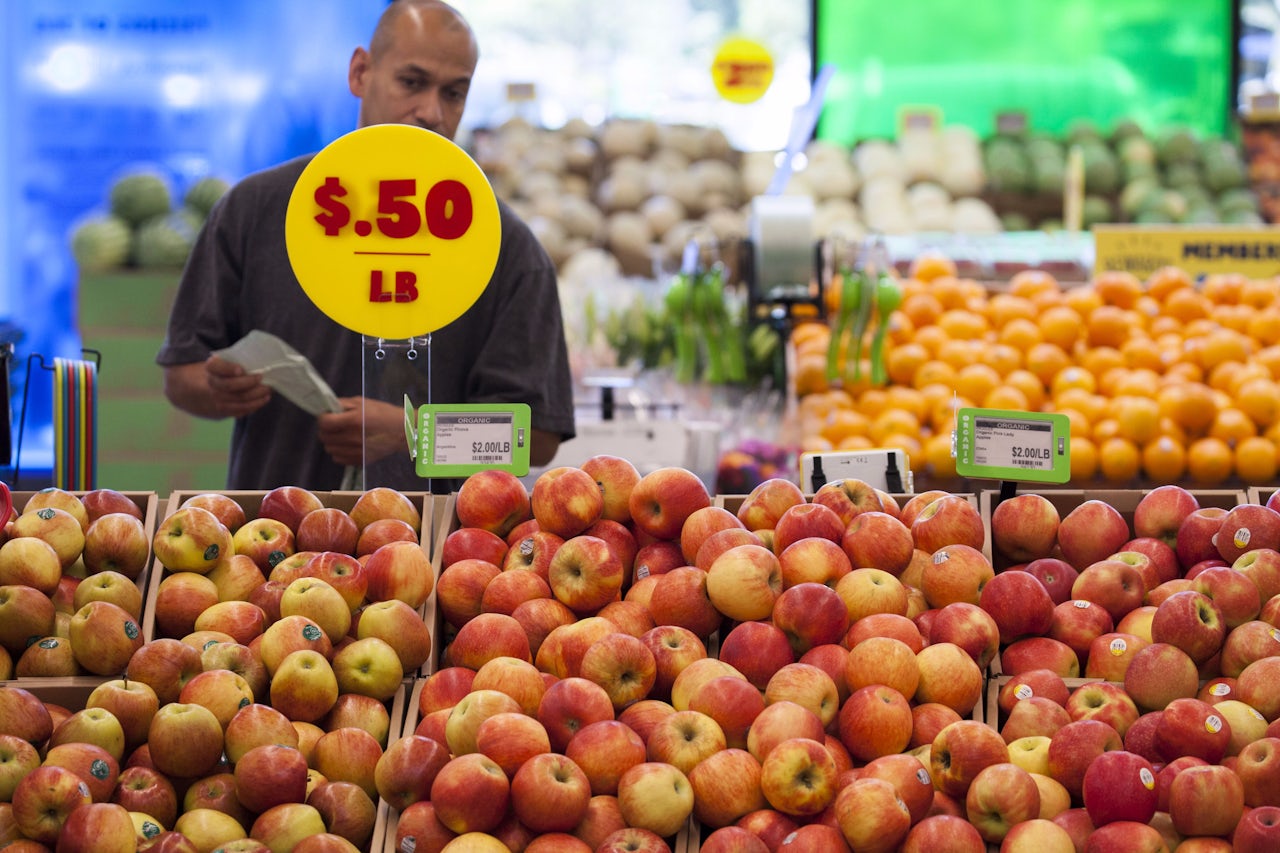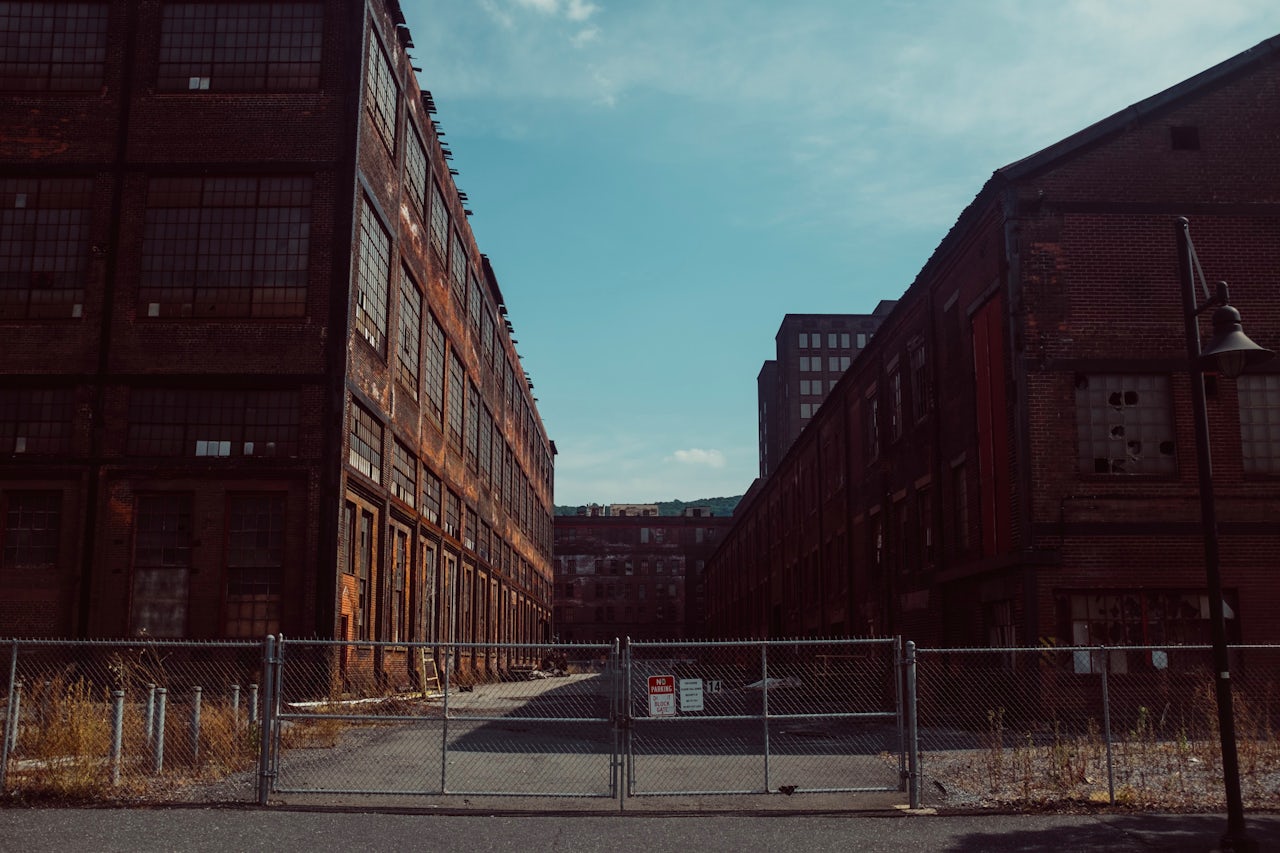When Amazon announced its acquisition of Whole Foods for $13.7 billion last month, we knew instantly how Wall Street felt, as Whole Food’s stock price jumped 27 percent and its competitors like Wal-Mart and Kroger slid as much as 17 percent. We knew how the tech press felt, as Bloomberg lauded Amazon’s “ruthless genius.” But how do the everyday patrons of Whole Foods feel? Well, they’re conflicted.
On Monday, the day that Amazon's presence became real in Whole Foods across the country, the first thing you saw when you walked into the grocery giant’s location on Houston Street in lower Manhattan was a pile of Amazon Echoes and Echo Dots, the online shopping king’s voice-activated assistant and speaker, which you can buy with your groceries for a discounted rate (at $99 and $44.99, respectively). Amazon’s speakers are the “pick of the season” and “farm fresh,” according to the advertising placed around it. Clever!
Elsewhere in the store, employees and shoppers were unflustered by the changes. When I asked an employee stacking organic baby spinach how she felt about the acquisition, she shrugged and said "It's literally been like four hours. I don't know." The spinach, for its part, now features an Amazon-branded price tag touting its new low price of $3.49 per ounce, down from $3.95 per ounce. She gestured to the Alexas stacked behind her and said “there’s this, I guess. There’s some new prices.”
What I didn’t expect when I entered this Whole Foods location with the express purpose to ask people about Amazon was the amount of meditations on capitalism I’d hear. When I asked a woman looking at high-end toothpastes about the store’s new owner she shrugged and said, “Is any big company a good company? I mean, I'm gonna use ‘em. As long as they're not, like, murdering babies.” An employee stacking non-GMO smoked tofu told me he thought the Amazon acquisition was “cool,” but struggled to come up with a reason why.
The store was quite busy for a Monday afternoon and, apart from ongoing construction to expand the store and some new Amazon-branded price tags, it didn’t look much different from how it did the last time I visited when it was not owned by Amazon. The new prices did attract at least one customer, though, who told me he came to “check out what Amazon was up to.” That made two of us!
I met a man named Dave who exclaimed to his wife about some organic bananas, "30 cents cheaper, thanks to Amazon!” Indeed, the organic bananas from Costa Rica and Colombia also had an Amazon-branded price tag, and were marked down to 69 cents a pound from 99 cents. “I'm conflicted,” Dave told me. “I kinda hate Amazon. Bad for small business. I try not to order off of Amazon, it's too big. But, hey, lower grocery prices is [sic] nice.” Dave held up an avocado. “A dollar cheaper, you can’t beat that,” he said. Okay Dave.
I walked up to a man stuffing seven individual IPAs into his backpack to ask for his thoughts. He wasn’t aware that Amazon had bought Whole Foods. “Okay, thanks,” he told me as he finished putting the beer in his backpack and quickly walked away. I turned to the Whole Foods employee administering the all-vegetable salsa sample table to ask her for her opinion on her new corporate overlord. “[Amazon] is okay, I use it every now and then,” she said. She suddenly became startled and asked me, “do you work for Amazon?”
A man looking at $4.69 non-GMO biodynamic pasta made using eco-balanced farming in Italy shrugged when I asked him what he thought. “I haven’t seen any changes yet,” he said. “I use Amazon and I have a prime membership, so maybe I'll get something out of it.” I approached another employee who also, for some reason, thought I was an Amazon mole. “It's crazy, man,” he said. “They just came out of nowhere. They didn't even tell us. Do you work for Amazon?”
A woman looking at vitamins told me she didn’t come to Whole Foods much because she was a member of a co-op in Brooklyn, but had heard about the acquisition. “It's a change. Change is good,” she said.
“Is it?” I asked. She laughed and replied, “I guess we can’t do anything about it.” She's not wrong. Companies like Amazon and Facebook have long made acquisitions worth hundreds of millions of dollars in order to snap up any emerging threats, and now these companies are moving outside of the tech realm in their quest to dominate everything. I contemplated our upcoming reality, in which everything we interact with will somehow be controlled by a billionaire who lives in northern California, and then walked out of the store without buying anything.



